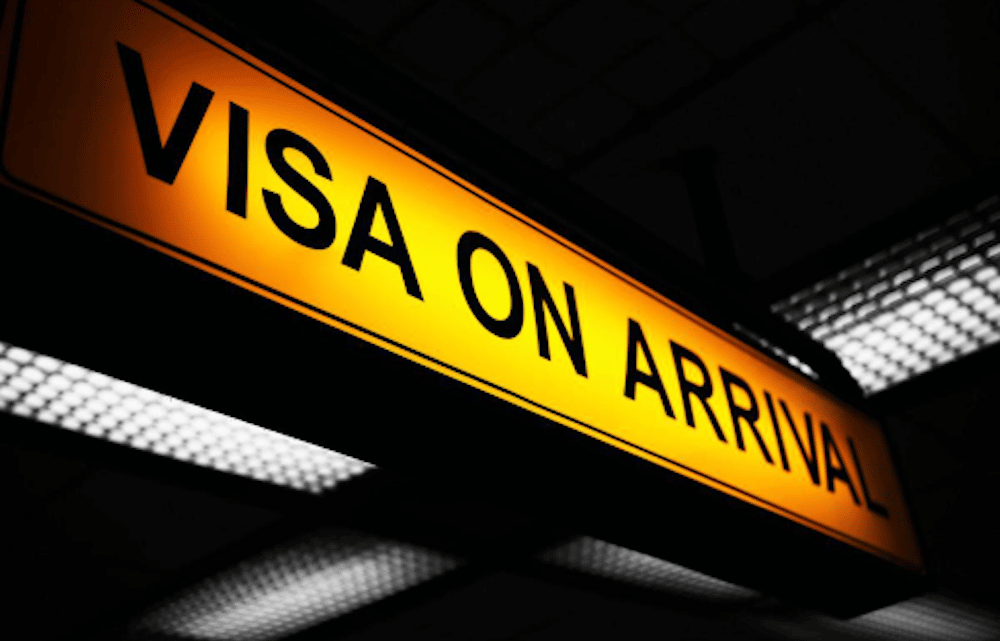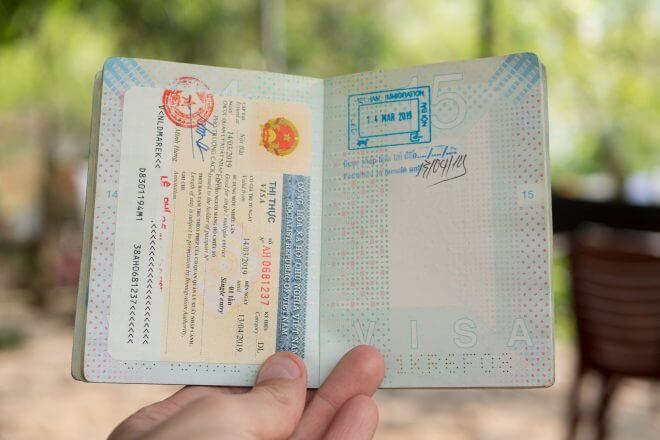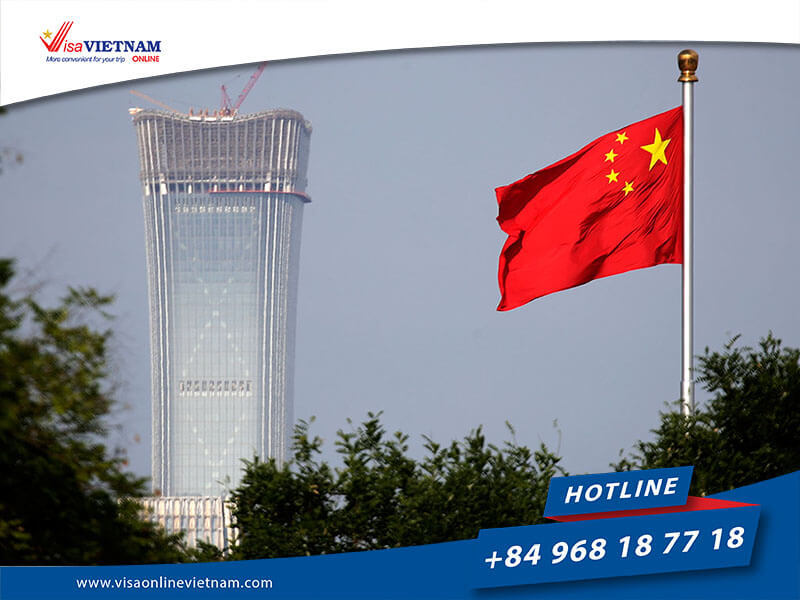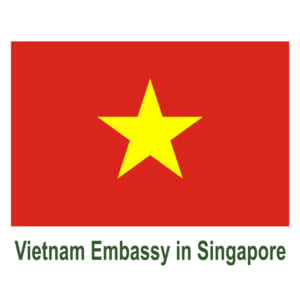
Vietnam Business Visa Requirements, Application Process, and Advantages
Vietnam is an attractive destination for business travelers due to its growing economy, emerging markets, and investment opportunities. If you’re planning to visit Vietnam for business purposes, it’s important to understand the requirements, application process, and advantages of obtaining a Vietnam business visa.
Table of Contents
Vietnam Business Visa Requirements

To obtain a Vietnam business visa, there are certain requirements that you need to fulfill. These requirements may vary depending on your nationality and the type of visa you are applying for. Generally, the following documents are required:
- Valid Passport: Your passport should have at least six months of validity remaining beyond your intended stay in Vietnam.
- Visa Application Form: You need to complete a visa application form accurately and honestly.
- Passport-sized Photos: Recent passport-sized photos meeting the specified criteria are usually required.
- Letter of Invitation: In most cases, you will need a letter of invitation from a Vietnamese company or organization stating the purpose of your visit.
- Proof of Accommodation: You may be asked to provide proof of your accommodation arrangements during your stay in Vietnam.
- Flight Itinerary: A copy of your flight itinerary showing your entry and exit dates might be required.
- Financial Proof: Some visa types require you to provide evidence of sufficient funds to cover your expenses while in Vietnam.
It’s important to note that visa requirements can change, so it’s advisable to check with the Vietnamese embassy or consulate in your country before applying.
Summary: The requirements for a Vietnam business visa include a valid passport, completed application form, passport-sized photos, letter of invitation, proof of accommodation, flight itinerary, and financial proof.
How to Apply for a Vietnam Business Visa

Applying for a Vietnam business visa can be done through different methods depending on your location. Here are the general steps to apply for a Vietnam business visa:
- Identify the Visa Type: Determine the appropriate type of visa for your business visit, such as a single-entry or multiple-entry visa.
- Complete the Application Form: Fill out the visa application form accurately with the required information.
- Gather Required Documents: Collect all the necessary documents mentioned earlier, ensuring they meet the specified criteria.
- Submit Your Application: Submit your completed application form and supporting documents to the nearest Vietnamese embassy or consulate in your country. You may be required to do this in person or through mail, depending on the specific requirements.
- Pay the Visa Fee: Pay the applicable visa fee, which varies based on the visa type, processing time, and your nationality. The fee is usually non-refundable, even if your application is denied.
- Wait for Processing: The processing time for a Vietnam business visa can vary. It’s advisable to apply well in advance to allow sufficient processing time.
- Collect Your Visa: Once your visa application is approved, collect your passport with the visa sticker from the embassy or consulate. Ensure that the visa details are accurate before leaving.
Summary: To apply for a Vietnam business visa, you need to determine the visa type, complete the application form, gather the required documents, submit the application, pay the visa fee, wait for processing, and collect your visa once approved.
Processing Time for Vietnam Business Visa

The processing time for a Vietnam business visa depends on various factors, including the embassy or consulate where you apply, the volume of applications, and the type of visa you are applying for. Generally, it can take anywhere from a few business days to a couple of weeks to process a Vietnam business visa.
It’s recommended to apply well in advance, especially during peak travel seasons or if you require urgent processing. Some embassies or consulates may offer expedited processing for an additional fee. You can check with the specific embassy or consulate for their estimated processing times and any expedited options available.
Summary: The processing time for a Vietnam business visa varies, typically ranging from a few days to a couple of weeks. Applying well in advance is advisable, and expedited processing may be available for an extra fee.
Vietnam Business Visa Fees

The fees for a Vietnam business visa vary depending on several factors, including your nationality, the type of visa you are applying for, and the processing time. Generally, the fees can range from around $25 to $135 or more.
It’s important to note that these fees are subject to change, so it’s recommended to check the latest fee structure with the Vietnamese embassy or consulate in your country before applying. Additionally, some embassies or consulates may require payment in cash or through specific payment methods, so it’s essential to be prepared accordingly.
Summary: Vietnam business visa fees vary based on nationality, visa type, and processing time. Fees can range from approximately $25 to $135 or more. Check with the relevant embassy or consulate forthe most up-to-date fee information and payment methods.
Documents Needed for Vietnam Business Visa Application
When applying for a Vietnam business visa, you will be required to submit certain documents to support your application. Here is a detailed list of the documents commonly needed:
- Passport: A valid passport with at least six months of validity beyond your intended stay in Vietnam.
- Visa Application Form: The completed visa application form, accurately filled out with the required information.
- Passport-sized Photos: Recent passport-sized photos that meet the specified criteria, such as size, background color, and appearance.
- Letter of Invitation: A letter of invitation from a Vietnamese company or organization, stating the purpose of your visit, duration of stay, and details about the host company.
- Proof of Accommodation: Evidence of your accommodation arrangements in Vietnam, such as hotel reservations or a letter of confirmation from your host company.
- Flight Itinerary: A copy of your flight itinerary showing your entry and exit dates.
- Financial Proof: Documentation demonstrating your financial ability to cover expenses during your stay in Vietnam, such as bank statements, employment letters, or sponsorship letters.
- Business Registration Certificate: If you are visiting Vietnam for business purposes related to your own company, you may need to provide your business registration certificate or other relevant business documents.
- Work Permit and Work Contract: If you are employed by a Vietnamese company, you might be required to submit your work permit and work contract.
- Criminal Record Check: Some embassies or consulates may request a criminal record check to ensure your eligibility for a business visa.
It’s important to note that additional documents might be requested based on your specific circumstances or the requirements of the embassy or consulate where you apply. Always check with the relevant authorities for the most accurate and updated document requirements.
Summary: The documents required for a Vietnam business visa application include a valid passport, completed application form, passport-sized photos, letter of invitation, proof of accommodation, flight itinerary, financial proof, business registration certificate (if applicable), work permit and contract (if applicable), and criminal record check (sometimes). Additional documents may be requested.
Validity and Duration of Vietnam Business Visa
The validity and duration of a Vietnam business visa depend on the type of visa you obtain. Here are some common scenarios:
- Single-entry Business Visa: A single-entry business visa allows you to enter Vietnam once and stay for a specific duration, usually ranging from 30 to 90 days. Once you exit Vietnam, the visa becomes invalid.
- Multiple-entry Business Visa: If you anticipate multiple visits to Vietnam within a certain period, a multiple-entry business visa might be more suitable. These visas allow you to enter and exit Vietnam multiple times during the validity period. Each stay is typically limited to a specific duration, such as 30 or 60 days.
- Visa Extension: If you need to extend your stay in Vietnam beyond the initial duration granted by your visa, you can apply for a visa extension through the local Immigration Department. The extension allows you to remain in Vietnam for an additional period, but it’s important to note that there are limitations on the total duration of stay, even with extensions.
It’s vital to understand the terms and conditions of your specific visa and comply with its requirements to avoid overstaying, which can result in fines, penalties, or difficulties in future visa applications.
Summary: The validity and duration of a Vietnam business visa vary depending on the type of visa obtained. Single-entry visas allow one entry for a specific duration, while multiple-entry visas enable multiple entries within a certain validity period. Visa extensions can be obtained to prolong the stay, but there are limits to the total duration.
Vietnam Business Visa Extension
If your initial visa duration is not sufficient for your business needs or you wish to stay longer in Vietnam, you can apply for a visa extension through the local Immigration Department. Here are the general steps involved in extending a Vietnam business visa:
- Prepare Required Documents: Gather the necessary documents for the visa extension application, which may include your passport, visa, completed application form, passport-sized photos, and any supporting documentation requested by the Immigration Department.
- Submit Application: Visit the local Immigration Department office or an authorized agent’s office to submit your visa extension application. Ensure that you have all the required documents and pay the applicable fee.
- Processing Time: The processing time for a visa extension can vary, typically taking several working days. It’s advisable to apply well before your current visa expires to avoid any complications.
- Collect Your Revised Visa: Once your visa extension application is approved, collect your revised visa reflecting the extended duration of stay. Verify the accuracy of the information on the visa before leaving.
It’s important to note that visa extensions are subject to approval by the Vietnamese authorities, and thereis no guarantee that an extension will be granted. It’s recommended to plan your stay in Vietnam accordingly and apply for an extension well in advance if needed.
Additionally, visa extensions are typically granted for a specific period, and there may be limitations on the total duration of stay, even with extensions. It’s crucial to comply with the visa regulations and ensure that you do not overstay your authorized period of stay, as this can result in fines, penalties, or difficulties in future visa applications.
Summary: To extend your Vietnam business visa, gather the required documents, submit the application to the local Immigration Department, wait for processing, and collect your revised visa reflecting the extended duration of stay. Visa extensions are subject to approval, and overstaying should be avoided.
Multiple-entry Vietnam Business Visa
For frequent travelers to Vietnam for business purposes, a multiple-entry business visa provides convenience and flexibility. Here are some key points to know about multiple-entry Vietnam business visas:
- Entry and Exit Flexibility: With a multiple-entry business visa, you can enter and exit Vietnam multiple times during its validity period without the need for additional visa applications.
- Duration of Each Stay: The duration of each stay allowed on a multiple-entry business visa is typically limited, such as 30 or 60 days. You must exit Vietnam before the permitted stay period expires and re-enter if needed.
- Visa Validity: The validity of a multiple-entry business visa can range from three months to one year or more, depending on the visa type and your specific circumstances.
- Use for Business Purposes Only: It’s important to note that a multiple-entry business visa is intended for business-related activities only. Engaging in other activities, such as employment or long-term stays, might require different visa types or permits.
- Compliance with Visa Regulations: Ensure that you adhere to the terms and conditions of your multiple-entry business visa, including the permitted duration of each stay and any other requirements specified by the Vietnamese authorities.
Applying for a multiple-entry business visa usually requires additional documentation, such as a detailed itinerary, supporting letters from your company, or evidence of previous visits to Vietnam. Check with the Vietnamese embassy or consulate for the specific requirements and procedures to obtain a multiple-entry business visa.
Summary: A multiple-entry business visa allows for multiple entries and exits from Vietnam during its validity period. Each stay has a limited duration, and the visa is intended for business purposes only. Additional documentation may be required, and compliance with visa regulations is essential.
Vietnam Business Visa for Foreign Investors
Vietnam offers favorable conditions for foreign investors, and having a business visa can facilitate investment activities in the country. Here are some key points regarding Vietnam business visas for foreign investors:
- Investment Activities: Foreign investors planning to engage in investment-related activities in Vietnam, such as establishing a company, exploring business opportunities, or attending investment meetings, can apply for a business visa.
- Supporting Documents: In addition to the general visa requirements, foreign investors may need to provide additional documentation related to their investment activities. This can include investment licenses, partnership agreements, project proposals, or other relevant investment-related paperwork.
- Invitation from Vietnamese Authorities: Foreign investors might require an invitation letter from the relevant Vietnamese government agency or department responsible for investment affairs. This letter serves as evidence of the investor’s purpose and eligibility for a business visa.
- Longer Validity Period: Business visas for foreign investors often have longer validity periods compared to standard visas. This allows investors more flexibility and convenience in managing their investment projects in Vietnam.
- Consultation with Local Authorities: It’s advisable for foreign investors to consult with local authorities or organizations specialized in investment matters to ensure they meet all the necessary requirements and regulations before applying for a business visa.
Foreign investors should thoroughly research the specific requirements and procedures for obtaining a business visa as an investor in Vietnam. Consulting with legal advisors or investment consultants can provide valuable guidance in navigating the process.
Summary: Foreign investors engaging in investment activities in Vietnam can apply for a business visa. Additional documentation related to the investment, an invitation from Vietnamese authorities, and longer validity periods are often required. Seeking guidance from local authorities or investment experts is recommended.
Advantages of Having a Vietnam Business Visa
Obtaining a Vietnam business visa provides several advantages for individuals visiting the country for business purposes. Here are some key benefits of having a Vietnam business visa:
- Ease of Entry: With a valid business visa, you can enter Vietnam easily and smoothly through designated immigration checkpoints without the need for visa-on-arrival services or additional documentation.
- Flexibility in Business Activities: A business visa allows you to engage in various business-related activities, such as attending meetings, conferences, negotiations, site visits, or exploring investment opportunities.
- Extended Stays: Compared to tourist visas, business visas often provide longer durations of stay, allowing youto spend more time in Vietnam for business purposes.
- Multiple Entries: If you have a multiple-entry business visa, you can enter and exit Vietnam multiple times during its validity period, providing flexibility for frequent business travelers.
- Investment Opportunities: Having a business visa enables you to explore investment opportunities in Vietnam, establish business connections, and initiate or expand your business operations in the country.
- Convenience in Documentation: A business visa eliminates the need for visa-on-arrival services or obtaining visas at the border, streamlining the entry process and reducing potential delays or complications.
- Official Recognition: Holding a business visa demonstrates your official recognition as a visitor engaging in legitimate business activities in Vietnam, which can enhance your credibility and facilitate interactions with Vietnamese companies and organizations.
It’s important to note that having a business visa does not grant employment rights. If you plan to work in Vietnam, you may need additional permits or visas specific to employment purposes.
Summary: The advantages of having a Vietnam business visa include ease of entry, flexibility in business activities, extended stays, multiple entries (with a multiple-entry visa), access to investment opportunities, convenience in documentation, and official recognition as a legitimate business visitor. Employment rights require separate permits or visas.
Please note that visa requirements, application processes, fees, and regulations can change over time. It’s advisable to consult with the Vietnamese embassy or consulate in your country or visit the official website of the Ministry of Foreign Affairs of Vietnam for the most up-to-date and accurate information regarding Vietnam business visas.



![[New] Major changes in Vietnam Immigration Policy since July 1, 2020](https://vietnamembassy-singapore.org/wp-content/uploads/2020/06/new-major-changes-in-vietnam-immigration-policy-since-july-1-2020-120x90.jpg)


May we know how much will it cost , and time processing , for verification of documents of Singapore Incorporated company ,in order to open business in Vietnam ?